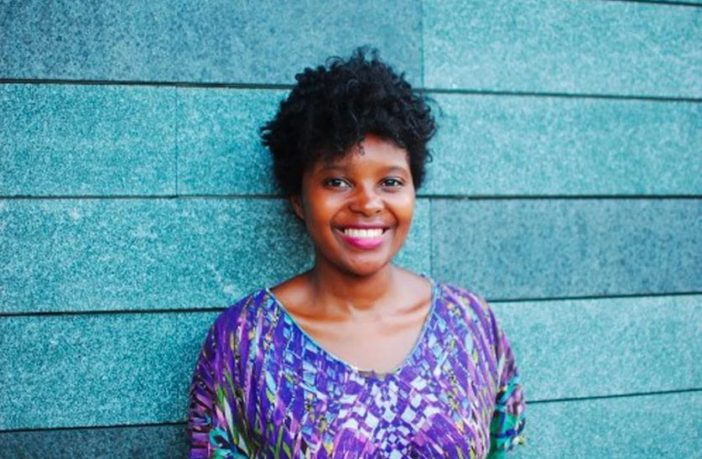Over the past year, there has been endless interest in and discussion about Artificial Intelligence (AI). The conversation will only increase as tools evolve and more AI products come to market.
Indeed, the global AI market is expected to reach $15.7 trillion by the end of 2030, representing an untapped lucrative industry. Although there is a clear gender gap and bias in machine learning tools, a group of phenomenal women are actively contributing to the advancement of AI.
These remarkable women are using AI technologies to build innovative tools alongside disruptive platforms that challenge bias in decision-making software.
Check out our list of 10 women worldwide who are actively reshaping the narrative around those who create and have access to AI.
1. Mutale Nkonde, CEO & Founder AI for the People
Mutale Nkonde, the founding CEO of AI For the People (AFP), pioneered black professionals‘ representation in the American technology sector. AFP develops technologists from underrepresented groups, commissions research on how technical systems impact Black media, and works to change the media narrative around tech neutrality.
Before this, Nkonde worked with AI governance and was responsible for various acts of legislation on AI and technology. She began her career as a journalist, producing BBC, CNN, and ABC documentaries.
She still writes on race and tech. Nkonde is a visiting policy fellow at the Oxford Internet Institute. She has a Master’s Degree in American Studies from Columbia University and will begin her PhD in Digital Humanities at the University of Cambridge in 2024.
2. Isoken Igbinedion, Parfait
Isoken Igbinedion is the visionary co-founder and CEO of Parfait, a company that brings a marginalized community into the mainstream beauty industry. Her brand creates wigs that match the skin tone of Black women – something that Igibedion found frustratingly hard to find as a consumer before she created her brand.
Parfait is technology-driven, using AI-driven skin tone matching and virtual consultations—it takes AI accuracy to the next level. The business has investments from Serena William’s Serena Ventures, rapper Chamillionaire, and singer Kelly Rowland. With features in Vogue Business and Cosmopolitan, Igbinedion and her brand are spearheading a more inclusive media coverage of Black beauty.
3. Simi Lindgren, Founder & CEO of Yuty
Beginning her career in marketing and communications, the founder and CEO of Yuty, Simi Lindgren, realized a profound disconnect between consumers and brands. So, she decided to use algorithms to solve the problem. From med school to interning at a magazine and working in their beauty cupboard, Lindgren founded Yuty and now pursues her passion.
The brand works by providing data-backed recommendations, using a quiz, and connecting consumers of all races, genders, and abilities with the right products. Lindgren’s idea was born out of her pain at never finding the right products, and her main goal is to empower brands and their customers.
Lindgren is London-based and attended the Said Business School at the University of Oxford. Yuty’s success has resonated far and wide, and the brand has been featured in Refinery29, ELLE UK, Bloomberg, The Washington Post, and Sky News.
4. Joy Buolamwini, Algorithmic Justice League
Dr Joy Buolamwini is the founder of the Algorithmic Justice League, an award-winning researcher, and the author of the national best-selling book Unmasking AI: My Mission to Protect What is Human in a World of Machines. The Algorithmic Justice League challenges bias in decision-making software, using art and advocacy to highlight AI’s social implications and potential harms.
Having taught herself to code at nine, Buolamwini studied at the Georgia Institute of Technology, then became a Rhodes Scholar at Oxford University before completing her PhD from MIT. She’s been featured in the likes of Time Magazine and the New York Times, and in 2019, she was listed in Fortune magazine’s “World’s 50 Greatest Leaders”, and her TED Featured Talk on algorithmic bias has over 1 million views. She describes herself as a “poet of code,” using art and research to highlight the social implications of artificial intelligence.
5. Angle Bush, founder of Black Women in Artificial Intelligence
After attending a technology event and being disappointed at the lack of diversity in the room, Angle Bush, founder of Black Women in Artificial Intelligence, decided to do something about it. Bush spearheaded a campaign to create National Black Women in Artificial Intelligence Day, which is now celebrated on August 1. Her work’s mission is to keep amplifying the voices of Black women and their contributions to AI.
Bush attended Harvard University and was the executive producer and host of “Your15 Minutes Radio” podcast for 15 years. The podcast brought business people and politicians informative insights and advice to empower them and their vision. Bush and Black Women in Artificial Intelligence have been featured in Forbes and Bloomberg.
6. Timnit Gebru, Founder & Executive Director at The Distributed AI Research Institute (DAIR)
Founder and Executive Director of The Distributed AI Research Institute (DAIR), Gebru was the center of a public controversy in 2020 over her departure from Google, where she was the technical co-lead of the Ethical Artificial Intelligence Team.
She co-authored a paper on the risks of large language models, from which Google management requested Gebru withdraw or remove Google employee names. After she refused, Google terminated her employment immediately.
Raised in Ethiopia, Gebru fled the Eritrean-Ethiopian War and eventually sought political asylum in the US. She completed her education all the way up to her PhD at Stanford University, then became a software developer at Apple and a researcher at Microsoft.
In 2021, Gebru founded DAIR, an independent, community-rooted institute to counter Big Tech’s influence on AI research, development, and deployment. In 2022, Fortune recognized her as one of the world’s greatest leaders and one of Nature’s top ten people who shaped science. She was also one of Time’s most influential people.
7. CEO and founder of Stemuli, Taylor Shead
Taylor Shead is the founder and CEO of Stemuli, a generative gaming platform that has revolutionized learning by offering immersive, career-connected experiences and a personalized curriculum to schools nationwide. Shead was the 94th black woman to raise over $1 million in venture capital and was recognized as one of Dallas’s 500 Most Influential CEOs in 2023 and 2024.
Under Taylor’s leadership, Stemuli has received accolades such as Forbes’ Transformation Award for EdTech, investment from Tim Draper, and the Bill and Melinda Gates Foundation. Shead was a student-athlete, playing Division 1 basketball at Loyola Marymount University, where she faced challenges, setbacks, and success.
Her journey to success as an entrepreneur in the EdTech space was partly inspired by her time on the road as an athlete and her frustration at not being able to study alongside. Her sense of lifelong learning has made her passionate about accessibility and inclusivity at Stemuli.
8. Elise Smith, Praxis Labs
Elise Smith, co-founder and CEO of Praxis Labs, has built a company that uses virtual reality technology to help businesses share diversity, equity, and inclusion-focused practice scenarios and lessons with their organizations. Elise has spoken about her parents’ fight for educational equity as a core inspiration behind her professional fight for access and opportunity.
Smith says the lack of mentorship and visibility for Black women leaders is a key problem. “I remember earlier in my career being in situations where I’d be looking for that senior leader […] But as a Black woman in the workplace, that’s not always as accessible to me”.
Armed with a Master’s degree in Education and an MBA from Stanford, Smith is using her brain and passion to make workplaces more equitable and inclusive. Praxis Labs’ clients include Google, Amazon, and Uber, to name just a few, and the company has raised over $19 million in venture capital to date. Smith’s accomplishments have landed her features in Essence, Afrotech, and Cosmopolitan.
9. Ana Cabral, Baruk
Based in Sao Paulo, Brazil, Ana Cabral is the principal co-founder of Baruk, a startup providing AI business software solutions. Baruk offers virtual assistants, chatbots, and automation services to reduce business costs, increase productivity, and maintain competitiveness. Cabral is passionate about helping communities use AI to automate and grow.
10. Ruha Benjamin, Princeton University
Professor Ruha Benjamin is an Associate Professor of African American Studies at Princeton University, where she studies the social dimensions of science, technology, and medicine. She has authored four books: Imagination: A Manifesto, Viral Justice, People’s Science, and Race After Technology, in which she talks about how algorithms can cement racial discrimination.
She frequently speaks at global events, including the UN Committee on Eliminating Racial Discrimination and the NAACP Legal Defense and Education Fund. In 2017, she received the President’s Award for Distinguished Teaching at Princeton. Her work has been featured in the New York Times, Essence, The Huffington Post, and countless others.
In 2018, she founded JUST DATA Lab, a space for activists, technologists, and artists to reassess how data can be used for justice. She serves on the Executive Committee for the Program in Global Health and the Center for Digital Humanities at Princeton.
Main Image: Mutale Nkonde



